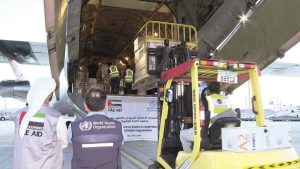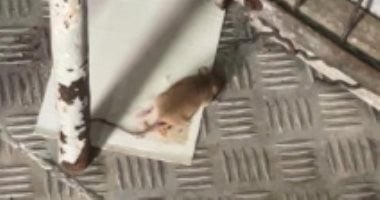Confirming the crises faced by the Israeli occupation army, whether in military capabilities, soldiers’ psychological state, or the spread of diseases among them, as well as health problems in camps and military bases, Hebrew media published videos showing the spread of rats and cockroaches in the “Beisla” military base in the occupied Negev desert.
The occupation army acknowledged that the main problem appeared through complaints from soldiers and their parents at the ground forces training bases in the southern occupied territories.
The bases of Sayer, Tzeelim, Behaltz, and Beisla belonging to the air force, in addition to other kitchens in the southern command such as the kitchen of the Shaked battalion of the Givati brigade, are among the most problematic bases regarding soldiers’ and families’ complaints about the quality, quantity, and type of food provided.
Following reports of soldiers going to sleep hungry, poor quality food, serious health problems, and weak leadership performance, the Israeli occupation army decided to conduct surprise inspections of several bases to verify the quality of food provided to soldiers, under the direction of the head of the Technology and Logistics Division, Major General Michel Yanko.
The army announced that commanders’ tours aim to verify the quality of logistical response and identify areas for improvement in the service provided to personnel.
The Israeli occupation army has faced sharp criticism in recent weeks due to the quality of food provided by its kitchens, especially in the southern command bases and training bases.
Many videos were published on social media showing poor hygiene and the presence of cats, rats, and cockroaches in kitchens.
According to Hebrew media, soldiers reported sleeping hungry and that the food they consume is unfit for human consumption.
In a statement from the Israeli army spokesperson, it was noted that “the Israel Defense Forces exert intensive efforts to provide comprehensive logistical support to all soldiers, especially fighters on the front lines. In recent years, especially since the beginning of the war, many resources have been invested in developing the food and infrastructure sectors.”
He added: “The IDF follows a proactive approach to identify and address gaps through regular inspections and training, with ATAL commanders conducting weekly professional tours in various sectors, after which identified and systemic gaps are addressed.”













Recommended for you
Exhibition City Completes About 80% of Preparations for the Damascus International Fair Launch
Talib Al-Rifai Chronicles Kuwaiti Art Heritage in "Doukhi.. Tasaseem Al-Saba"
Unified Admission Applications Start Tuesday with 640 Students to be Accepted in Medicine
Egypt Post: We Have Over 10 Million Customers in Savings Accounts and Offer Daily, Monthly, and Annual Returns
His Highness Sheikh Isa bin Salman bin Hamad Al Khalifa Receives the United States Ambassador to the Kingdom of Bahrain
Al-Jaghbeer: The Industrial Sector Leads Economic Growth